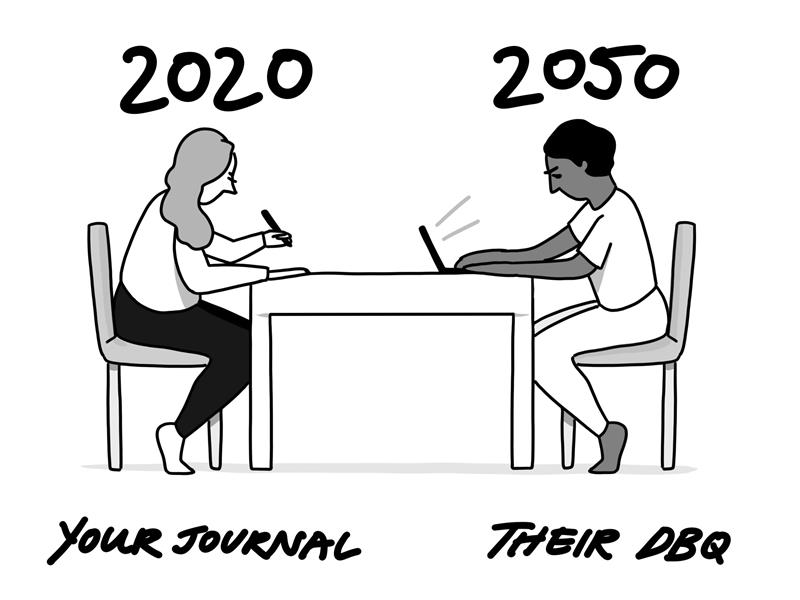Journaling the Pandemic- Informing future generations
Over the past six months, we have heard from friends, parents, teachers, and health professionals about the strategies to help cope and take care of ourselves during this pandemic. These can range from physical activities like going for a run to mental care like meditating. But have you ever thought about journaling life during an unprecedented time like this? Writing in a diary, notebook, or even on a spare scrap of paper can not only be a therapeutic practice for yourself but also a way to inform future generations about our day to day lives during a pandemic. We could be the primary sources of the future.
In a unique time like this, many thoughts are swirling through our heads. Some are negative, like the lives that have been lost and the homes that have been destroyed by the wildfires tearing through the West Coast. There are also many unknowns about the time we are living in, and it can be hard to accept that this is our reality. Our experiences as individuals may vary, but we are all still facing the same unparalleled bizarre world; we have all faced adversity and changed in one way or another. No matter what you are feeling, to prevent our thoughts from bubbling up and overflowing, we need a place to let out our highs and lows and fears and hopes. Writing in a journal or diary can be that place for you.
In a journal, not only can you share your experiences and let out your emotions for personal care, but you can also provide insight into daily life during such an exceptional time for posterity. We read primary sources in history class to get a raw and deeper understanding of events through personal experiences, but have you ever thought that you could create your own primary source of the future? Pliny the Younger, a lawyer, author, and magistrate of Ancient Rome thought he was merely writing letters to his friend; little did he know they would inform future historians about life in Ancient Rome. He wrote letters about the eruption of Vesuvius in 79 A.D, a volcano that destroyed Pompeii. The volcanic ash covered the city, and darkness spread across the sky. His descriptions are eerily similar to the smoke and ash we experienced recently. In England during the 17th century, Samuel Pepys, a member of Parliament, kept a frank diary about his daily experience in the English Restoration period writing in secret code when gossiping about King Charles II. You can write about a major event like Pliny did of the volcanic eruption or simply discuss daily life like Pepys. Take creative liberty and record your experiences in code or pretend you’re sending a letter to a friend. No matter what you write or how you write it, it will still hold historical significance and weight in informing succeeding generations. We are living through a major event in history, so why not write about it?


